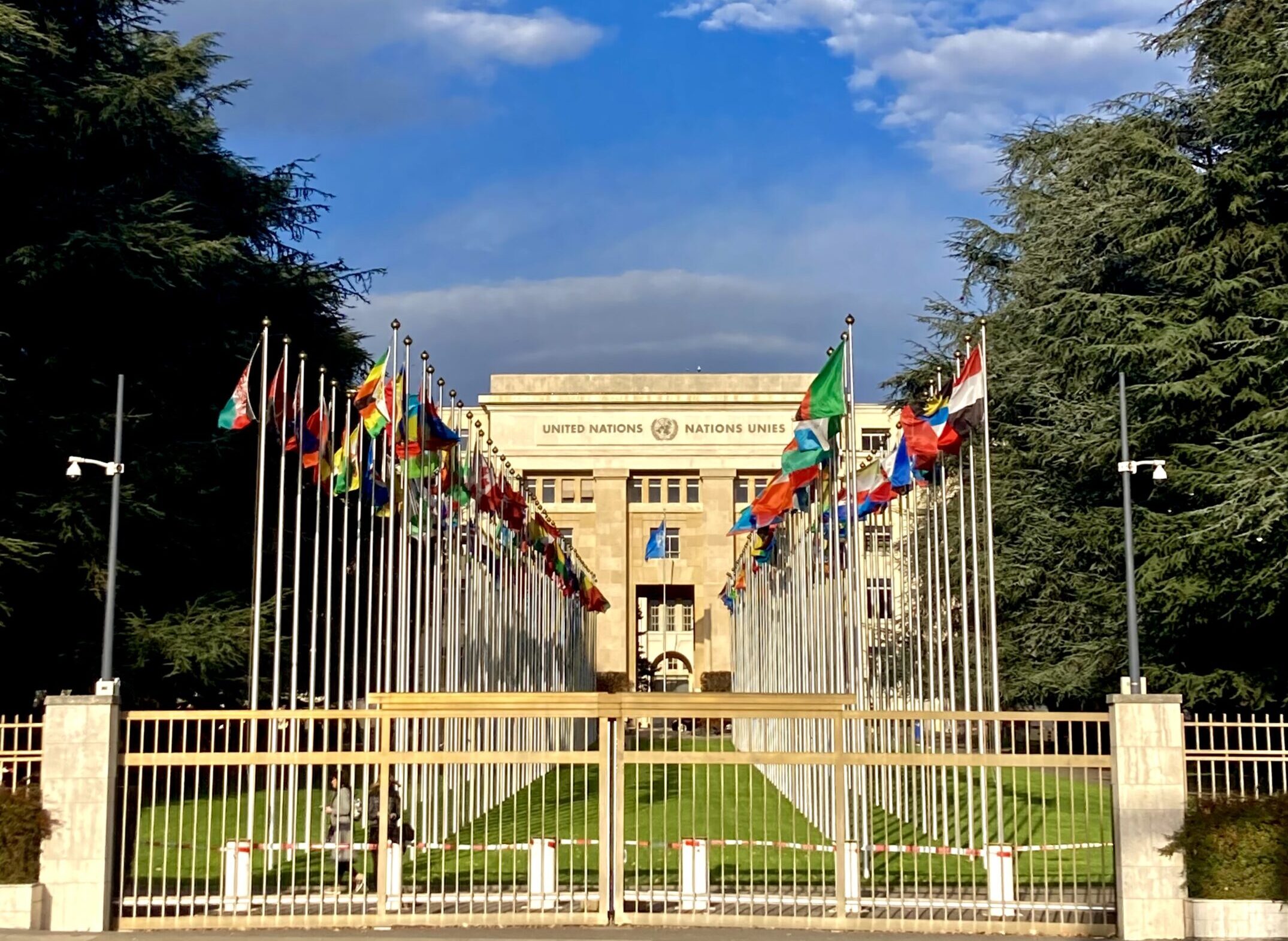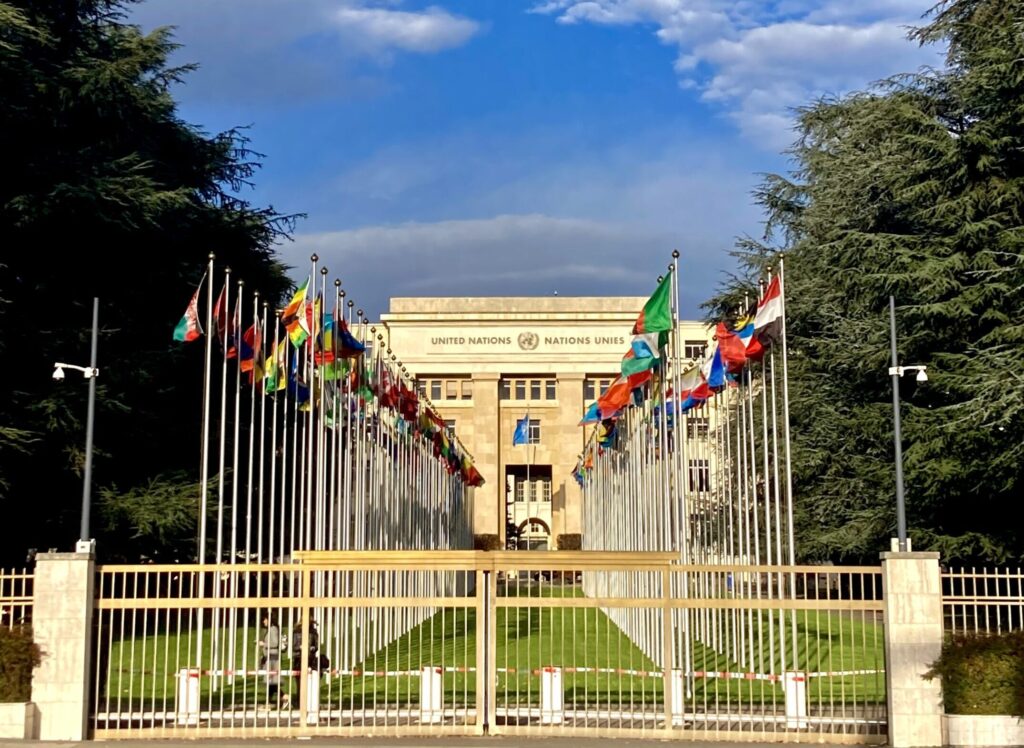Emerging trends and key challenges in implementing the UNGPs
GoodBlog | read time: 6 min
Published: 5 December 2024

The United Nations Forum on Business and Human Rights provides a unique multi-stakeholder platform for discussing the progress being made to address and prevent the adverse impacts business activities can have on human rights. Representatives from business, NGOs, UN member states, indigenous peoples and academia participated in the event, with almost 3,000 in Geneva, and a further 1,000 joining online. This year, the Forum focussed on the ‘smart mix of measures’ – national, international, voluntary and mandatory – seen as central to realising the UN Guiding Principles on Business and Human Rights (UNGPs).
Our human rights leads, Caroline Le Mestre and Elena López, who attended the Forum, share their key takeaways from the event and the best practice that is likely to emerge.
Responding effectively to legislative changes
With the CSDDD perhaps the most significant piece of human rights legislation to be introduced in 2024, calls were made to ensure that actions were being taken to put the right systems in place to comply with the directive and prevent it from becoming a tick-box exercise. Much of what in-scope companies will be required to undertake is already regarded as best practice and should be on the agenda for any organisation signed up to the UNGPs.
Speakers at the Forum also highlighted that while there has been some discussion that the CSRD may be streamlined following comments by the EU Commission President Ursula von der Leyen, this is most likely speculation and businesses should focus on meeting the requirements as currently set out.
The UK’s Modern Slavery Act was also discussed, echoing feelings currently being expressed in the UK House of Lords, that while the Act raised awareness and brought the issues to board attention, it was no longer fit for purpose. It was hoped that any changes made would align with the EU’s human rights due diligence framework, which reflects what has been discussed in some quarters in the UK.
Conducting heightened human rights due diligence in conflict affected areas
Not surprisingly given the current geopolitical context, operating responsibly in a conflict zone was a major topic. Companies operating in conflict affected and high-risk areas (CAHRAs) need to take a specific set of measures to properly identify and manage any impacts on the conflict and human rights. In particular, this will mean conducting heightened human rights due diligence (HRDD) and ensuring that they are familiar with international law in armed conflict situations. This may well involve a different set of skills from that which is usually found in-house, so companies may need to look for external resources if they find themselves operating in CAHRAs.
Companies need to recognise that they will never be neutral if they remain in the country, and understand the potential scenarios for conflict escalation and how to respond. This will involve considering the ethical dilemmas that might result from either staying or exiting a market because of conflict. This business decision will need to be guided by heightened human rights due diligence.
Human rights affected by climate change
Climate change and its human rights impacts was also one of the key talking points during the Forum. A major breakthrough relates to climate change litigation. In recent years, the number of climate change cases being brought against governments, using internationally recognised human rights conventions as the basis for the claims, has risen significantly. In 2024, the European Court of Human Rights heard cases against Switzerland, France and Portugal, recognising that the European Convention provides a right to effective protection from the state from the negative impacts of climate change on people’s life, health, well-being and quality of life. The Court found that Switzerland had failed to adopt a regulatory framework to quantify and meet its past emission reduction targets, affecting the complainants’ right to respect for private and family life, among others, under the European Convention. A decision that may encourage more complaints in the hope of forcing governments, and indirectly companies, to act.
More directly for businesses, the on-going cases against leading brands for greenwashing reinforces the idea that businesses need to understand their climate impacts fully and ensure that any statements they make are both accurate and verifiable.
Women in global supply chains
With an estimated 200 million women in global supply chains, business case for supporting reproductive health at work to reduce absenteeism, staff turnover and increase productivity was made. The UNFPA, which established the multistakeholder Coalition for Reproductive Justice In Business, presented policies and strategies that businesses can introduce to support reproductive health and rights at work, such as offering parental leave, providing rooms for breastfeeding and giving access to contraceptives as well as mechanisms for detecting and responding to gender-based violence in the workplace, and making flexible working arrangements for women undergoing menstruation and menopause.
Six key areas that companies should focus on were highlighted including: –
- Detecting gender-based violence
- Creating family-friendly workplaces including policies on anti-natal care, childbirth care and post-natal care
- Flexible parental leave
- Prevention and treatment of HIV and other sexually transmitted infections
- Reproductive counselling including access to contraceptives
- Counselling and detections services related to reproductive cancers
Marginalised communities in global supply chains
Communities Discriminated on Work and Descent (CDWD), are estimated to be 260 million people globally. These include Dalit in South Asia, Roma in Europe, Quilombola in Latin America, Haratines in Africa among others. They are discriminated against on the basis of descent or inherited status such as caste, community or social origin, present or ancestral occupation as well as name and family. They usually encounter substantial barriers that can limit their access to economic opportunities and are exposed to severe abuses at work. Industries such as leather, textiles and agriculture in India for instance often have workers from these ‘invisible’ groups where they have been subjected to bonded labour, low pay, gender-based discrimination, harassment and child labour.
The challenge for businesses is to identify these groups within their own supply chain and find the right ways to engage with them to understand what steps can be taken to mitigate any harms. To do this, they will need to work with members of the same local community groups and human rights or CDWD experts to ensure their effective engagement and participation in the decision-making process.
Building inclusive value chains for sustainable change
Stakeholder engagement is a key tenet of effective human rights due diligence, and this should be prioritised to help build robust supply chains that operate to higher standards. Suppliers should be consulted and included in the decision-making process, where necessary building in support to help implement any new requirements. SMEs, particularly those in the global south, may not have the resources or leverage to implement change and this will need to be factored into an effective human rights due diligence programme if we are to succeed in building robust value chains.
Collaboration is essential to tackle severe impacts
Sustainability efforts should not be business secrets. Collaboration drives fairer, cleaner supply chains, reduces costs, and makes initiatives more effective. At GoodCorporation we have begun to see companies working together to use their leverage to drive better outcomes and reduce adverse human rights impacts. At the Forum, Tony’s Chocolonely outlined its Open Chain initiative for cocoa which was designed to tackle the three main human rights challenges in cocoa production – lack of living incomes, child labour and deforestation.
The initiative shares costing and sourcing models for cocoa based on five core principles:
- traceable sourcing,
- paying the living income reference price for all beans,
- long-term relationships for stability and predictability
- cooperatives, and
- coaching for better quality and productivity.
We expect to see similar initiatives emerge as companies recognise that such actions help address some of the root causes behind low pay and promote more sustainable cultures and industry-wide pledges to tackle the problems head on.
Realising the UNGPs is complex and the Forum was right to highlight the smart mix of measures that will be needed to achieve this objective. It was also helpful to hear so many voices from human rights specialists and civil society organisations, operating in the field to raise awareness of specific issues, through to the companies themselves launching new initiatives and the investment community, urging companies to prioritise actions that align with the UNGPs over box-ticking compliance with new legislation.
Addressing the human rights harms that result from business activities will remain high on the agenda in the coming years. It is an increasing priority for our clients and for the many organisations committed to raising standards and building robust supply chains that properly support the people and communities upon which they depend. Visit our website for more information about our human rights services.
work with us
